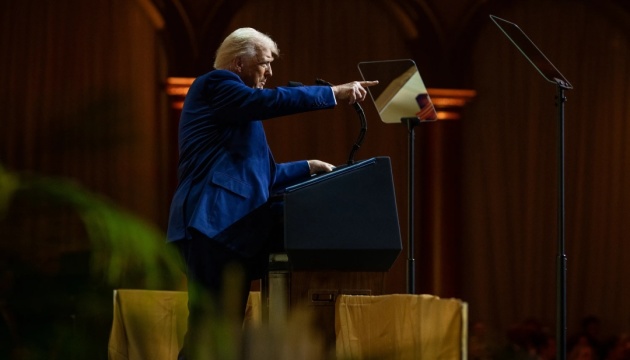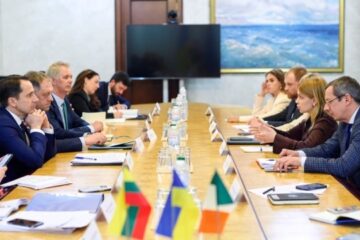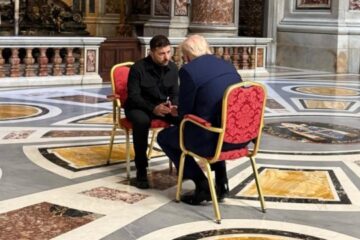Experts are unanimous: conditions for a just peace can be achieved by persistent resistance against the aggressor, strengthening the Armed Forces of Ukraine and consolidation of partners. Following the events of recent days – the disrupted negotiations in London, yet another brutal bombardment on Ukrainian cities and civilian infrastructure by the Russian Federation, fresh statements by US President Donald Trump – two positions are becoming more and more prevailing among Ukrainian people.
On the one hand, we hear calls to continue fighting the aggression in all circumstances until victory: not to adapt to Trump’s whims, to firmly uphold national interests, to hang tough for a little longer, at least until the Fall, when, as some predict, everything in Russia will start to crack at the seams.
On the other hand, warnings are voiced that under no circumstances should we let it happen that the US terminates its support for Ukraine. To prevent this happening, we must accept what Trump is imposing on us, which is essentially the so-called “Finnish scenario”.
However, both positions raise questions.
The first one – “hold out until the Fall” – we have heard already. Last summer, numerous analysts were predicting that Russia was about to crumble down, will fall soon. But that never happened, however. Staking on “time” as the only ally is a too dangerous option.
As for the second approach, it should be appreciated that the support from the Trump administration was actually lost on the day he was inaugurated into the office of president of the United States. That said, is it appropriate to talk about the need to “preserve” what is no longer there?
As for the “Finnish scenario” proper…Its essence is to end the war with Russia, as Finland once did in its war with the USSR: supposedly, cede part of own territories, and in return receive peace and the opportunity to develop in peace and prosperity. It sounds almost like an advertisement for a tourist package: “Cede Crimea and live like in Helsinki”. However, this is a dangerous illusion. No territorial concessions will satisfy Putin. One must not understand the Kremlin’s logic at all to hope for this to happen. He will simply take what is ceded to him just to invade at a later time and seize the reminder. And this will be the scenario of Czechoslovakia rather than that of Finland.
Another important aspect is that the topic of Crimea was perhaps intentionally introduced into the negotiation agenda. The reaction from Ukraine and Europe was predictable (recognition of the annexation of the peninsula is inconsistent with the principles of the UN Charter, international declarations and agreements, including the Helsinki Act, and the main principle of modern international law – respect for the borders of sovereign states) – it was to be expected. That is, it was just a pretext for Washington’s demarche – to accuse Kyiv of being reluctant to accept the “reality” of the occupation, and ultimately to justify the intensification of the dialogue between Washington and Moscow. And if it had not been for the Crimean issue, another pretext would have been found.
“We must respond to Trump’s pressure as we did before, using flexible but principle-based approach”
“We have already seen at least two crises in relationships with the Trump’s administration – in mid-February and early March. We must take into account that there is an obvious cyclicality in Trump’s political behavior. When he wants to achieve something, he launches an aggressive attack on his negotiating counterpart in order to break it down and get him forced into accepting agreements on his own terms. But if this fails, after a certain while, more or less constructive negotiations begin to find a mutually acceptable compromise,” Volodymyr Fesenko, Chairman of the Board of the Penta Center for Applied Political Studies, said in a comment to Ukrinform.
The current phase of the pressure is part of this cycle. “Now we need to persevere, endure the aggressive phase of Trump’s pressure (it lasts several days), demonstrate readiness for negotiations and constructive compromises, above all else with the United States.”
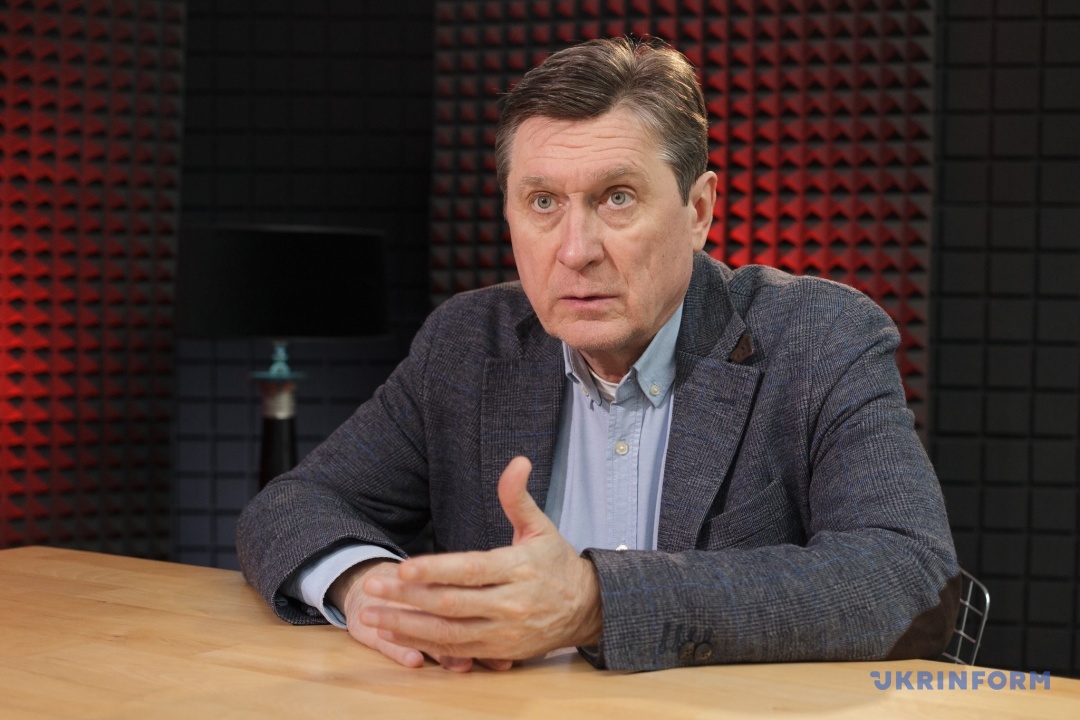
The political scientist believes that the priority should be to return to the ceasefire negotiations, while more complex issues – Crimea, NATO membership and the status of the occupied territories – can be discussed on a parallel track. “We need to get the attention of American partners focused on the fact that only a ceasefire can be agreed upon by the end of April,” he adds. Fesenko regards the threat by the US to withdraw from the negotiation process to be part of tactics of pressure rather than an ultimate decision. “The current crisis in the negotiation process is still situational in nature and can be overcome… The United States can withdraw from the negotiations (or rather put them on pause), but only if the negotiation situation reaches a complete stalemate”.
Fesenko is warning: “In relationships with Trump and with regard to negotiations on a peaceful end to the war, never must we rush to extremes. We should not go for a breakdown of relations, never mind a conflict with the US. We need to preserve what has remained of partnership relations, need to play on the contradictions that will inevitably arise between the US and Russia, regarding, in particular, relations of both with China.”
Mr Fesenko rejects a direct analogy to Finland. “There will be no ‘Finnish scenario’ (nothing is exactly repeated in history, and analogies are just hypothetical). A ‘Korean scenario’ is more likely, but with major differences.” The most realistic compromise is a ceasefire along the front line. “Part of Ukrainian territory will then remain under de-facto Russian control for an indefinite period of time. And, de facto, we will have to accept this, because otherwise the war will be endless with increasing risks and problems for us.” However, the political scientist categorically emphasizes: “But de jure it is unacceptable for us to recognize as Russian any of the Ukrainian regions illegally annexed by the Russian Federation. If we do so, for example with respect to Crimea, then tomorrow Russia will demand that we recognize as Russian more regions it may annex… It is absolutely impossible for us to create a precedent where we give up our territory.”
If the Trump administration does dare to recognize Crimea as Russian, Fesenko suggests explicit countermeasures. “We must warn the Americans that this will disrupt the ratification of the rear earth minerals agreement between the United States and Ukraine in the Verkhovna Rada. “On this issue, we must act in concert with our European partners, together we must declare our principled non-recognition of the Russian annexation of Crimea… in the event of the US attempting to recognize Crimea as Russian, we must do everything we can together with our European partners to prevent as many countries as possible from recognizing Crimea as Russian.”
Considering the further development of events, Volodymyr Fesenko outlines several scenarios:
The most likely: “The war is going on along with peace negotiations. If Russia fails to achieve success in the war against Ukraine by the end of the year, and the Kremlin realizes that it will be unable to prevail in its war against Ukraine, then a new opportunity will arise to agree on cessation of hostilities.”
Relatively optimistic: “The US reaches an agreement with Russia and Ukraine on a temporary ceasefire in the near future (by the end of April or in May); the ceasefire, albeit not strictly observed, will be extended.”
Pessimistic: “Should the negotiations reach a stalemate, the US withdraws from the negotiations. The war is grinding on. And then look at the first scenario, with the only difference that other countries will act as mediators instead of the US – China, Turkey, or a group of countries. A possible option is a peace conference to end the war in Ukraine.”
“Trump is ready to sell out to Russia not only Crimea, but also “Rome”, speaking hypothetically, just to report to his voters: “I have stopped the war!”
“We really lost the foremost supporter on the day Trump entered the Oval Office for the second time as president of the United States. And we lost it not by chance. For Trump, no legal or institutional restrictions exist — he does not believe that the rules apply to him at all,” says Volodymyr Ohryzko, former Ukrainian Minister of Foreign Affairs, CEO at the Center for Russian Studies.
The diplomat describes Trump as a politician who shatters the established systems of international and economic relations, guided by his own vision of “America’s interests,” which has no reasonable limits. “This is not about foreign policy, but rather about his personal game of “deals” in which he really believes, even if it is illusional.”
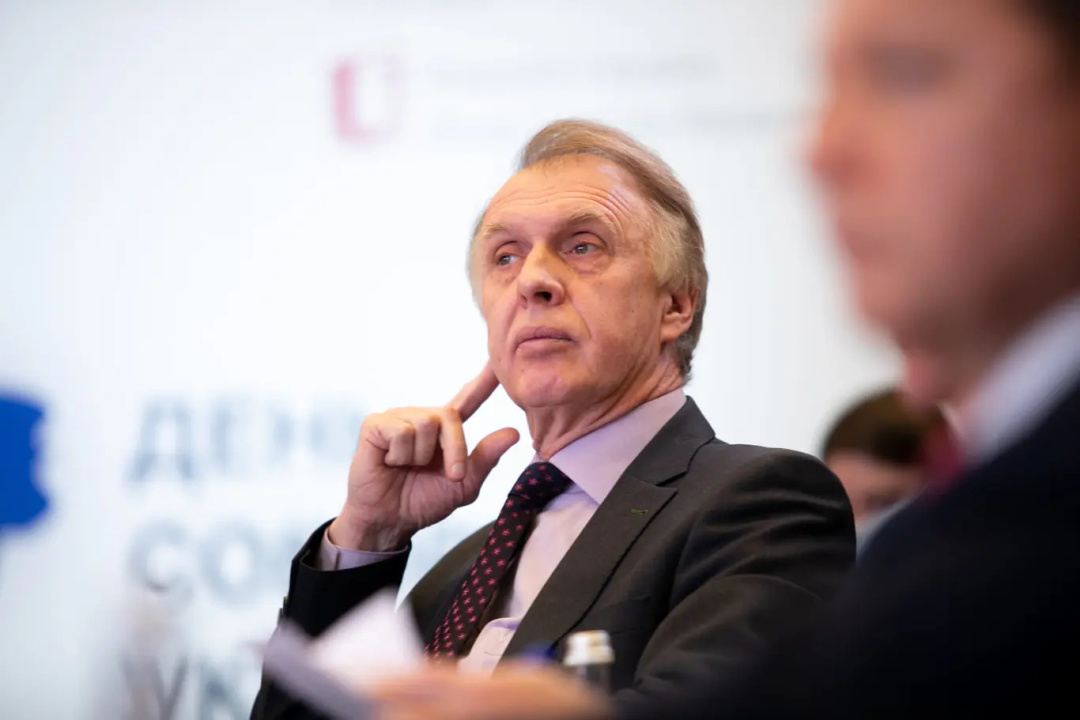
Mr Ohryzko quotes a recent statement by Trump: “I don’t care about the terms of the ceasefire, I care about the ceasefire.” The analyst believes this to be a key signal. “Trump is poised to sell out not just Crimea to Russia, but also “Rome,” speaking hypothetically, and anything else, if it allows him to report to his voters: “I stopped the war. I defeated both Russia and Ukraine.”
The diplomat suggests that Trump is viewing concessions by Ukraine as a way to “reset” relations with Russia and to strike beneficial economic cooperation deals (energy, the Arctic, rare earth minerals). “But this is not a strategy, it is a mirage. Selling the air. And most importantly, someone is generously selling him this air. And he seems ready to buy.”
Volodymyr Ohryzko highlights the logic behind Moscow’s behavior in this situation. “They are selling Trump a candy wrapper, knowing that there is no candy inside. They promise him the prospect of cooperation in the Arctic, the exploration of rare earth minerals, a new “grand partnership.” But in reality, this would take multi-year investments, hundreds of billions of dollars, decades of infrastructure and technological development. Trump will become extinct before anything of this is realized into reality, at least theoretically.”
The problem, according to the former Foreign Minister, is that Trump is focused on achieving an immediate result. “He wants to declare victory today, without thinking about what will happen tomorrow.” That is why, the diplomat emphasizes, it is impossible to assess Trump’s actions through the prism of rational politics. “This is not about logic. This is about hearing about yourself every day: “You are winner, you are hero.” Today he raises tariffs on China by 250%, tomorrow he promises to reduce them by half and sit down at the negotiating table. One statement today, a reverse statement tomorrow. This is chaos. And most importantly, this chaos is not accidental, it is in his brain. Trump believes that chaos amounts to strength. But in reality, it will be his political downfall.”
What is the way out? Mr Ohryzko calls for a sober assessment: “We must speak frankly: the United States, represented by Trump, has actually declared to the Europeans — and therefore to us — that they are moving away from their commitments regarding European security. This suggests only one thing: Ukraine will no longer receive any systemic support from the Trump administration.” However, there is no need to panic. The diplomat points to the presence of a pro-Ukrainian force among the American establishment, as well as the potential influence from the US business community, particularly the defense industrial sector. “If Trump really decides to withdraw America from the European security field, many adequate politicians and businessmen in Europe will ask a logical question: why then do we buy American weapons?… Now imagine: a group of lobbyists from the American defense-industrial sector come up and tell Trump – you, of course, are free to cherish your illusions, but we don’t want to lose defense contracts worth tens of billions of dollars… And if there are not one, but several dozen such “walkers” to Trump, members of major corporations, something in his brain will definitely change. Because America is not Trump. It is a system of balances and influences.”
At the same time, in the current circumstances, our interlocutor sees a unique chance raising both for Europe and Ukraine. “For most Europeans, it has already become obvious: with an American president like Donald Trump sitting in the Oval Office, no security system can be built. This means only one thing – Europe must think about its own, autonomous security architecture. “The key element of this system should be a European army capable of responding to threats on its own. And here an enormous opportunity arises before Ukraine. There is simply no other army in Europe that has the combat experience, the ability to quickly adapt to changing circumstances and the motivation that the Armed Forces of Ukraine have. This makes us not just a partner – we are the foundation of a new European security architecture.”
The task for Ukraine is to persistently promote this idea. “We must ‘attack’ each and every European capital — diplomatically, politically and informationally. Explain in simple and clear terms: we have one of the most powerful armies on the continent, you have financial resources, technology, production capabilities. We integrate this all and we get a new quality of defense capability…. And most importantly, cease being afraid of threats from Moscow.” Once British, French, German army units come to the Ukrainian soil, this will provide the first real chance to achieve a ceasefire, because this will get the Kremlin to think about whether it is worth playing with fate.”
“We must be patient and do what we did before: exhaust the Russian Federation, strengthen our military capabilities and consolidate Europe”
“It is currently impossible to impose the “Finnish” model on us and Europe. Agreeing to the ultimatums of the administration, which from day one has not even bothered to hide its indifference towards Ukraine, is not a strategy, but a trap,” argues politics analyst Yury Bohdanov.
He is convinced that the discussion around Crimea was deliberately provoked to create a pretext for accusations against Kyiv. “It was thrown in as an irritant to give Trump and Witkoff a pretext for another “story about bad Ukrainians”. If there were no Crimea, they would come up with something else. We must withstand this pressure and these accusations.”

According to the expert’s observations, the Russian dictator is showing haste, realizing the temporary nature of the pressure being exerted on Ukraine through the US. “He understands that the window of opportunity for pressure on Ukraine through the US will not be open eternally. And at the same time, he still wants to get the maximum and will step up terror against civilians as his forces are impotent to achieve any significant advances on the battlefield.”
In these circumstances, Yury Bohdanov outlines three vital diplomatic tasks for Ukraine.
Firstly, it is necessary to firmly stick to the “red lines” in any negotiations on ending the war. “This is not about “paying off”, but about giving away today what will be used as a springboard for the next strike tomorrow. Therefore, there must be no restrictions imposed on the deployment of partner troops. No restrictions imposed on the size and strength of the Armed Forces of Ukraine. No lifting of sanctions without a sustainable ceasefire and basic security guarantees. Money for the Armed Forces of Ukraine, sufficient to repel aggression, until Ukraine restores its economy. No recognition of the occupied territories as Russian.”
Secondly, in relationships with the United States, we must maintain channels for communication, hoping for a possible change in Washington’s policy in the future. “We need to get all the aid packages Biden’s administration approved for us, need to keep the door half-open in the hope that, after inevitable failures in other areas, the US administration will become a little more adequate,” the expert notes. Regarding the potential “rear earth minerals deal”, Bohdanov recommends that Ukraine stay in the process: “We will need this agreement if weapons shipments are continuing and if the US position becomes more reasonable. In all other cases, we will not need it.”
Thirdly, we must intensively work towards strengthening European unity, towards becoming a driving force behind building a new European security architecture that is less dependent on the US. “Putin’s Russia is a common threat to us all – to everyone who lives in Europe. Therefore, our approaches to defense must likewise be common to all.”
Summing it up… The situation demands from Ukraine to be resilient, have a strategic vision, be flexible in tactics, and work actively with European partners.
Myroslav Liskovych. Kyiv
Source: How should Kyiv respond to pressure from US President Trump?

